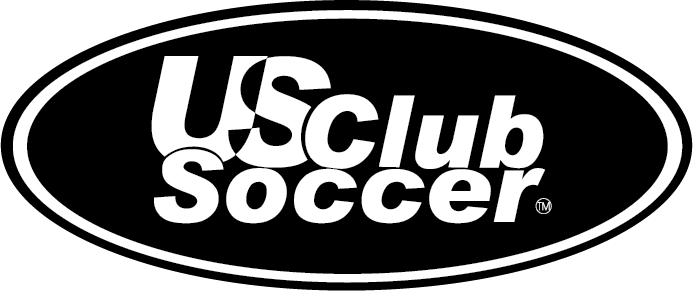The growing role of social media for athletes (via Onrise)
Editor’s Note (Oct. 28, 2024): This article was submitted by Onrise, which US Club Soccer has partnered with for ongoing educational resources related to mental health. The author, Emanuel McGirt Jr., is the Athlete Copywriter at Onrise. Emanuel is a former collegiate and professional athlete and a current NCAA staff member. He grew up playing football and continued his career at NC State and briefly in the Canadian Football League (CFL). US Club Soccer member coaches are encouraged to attend a monthly webinar and digital workshop series hosted by Onrise and US Club Soccer. For the latest schedule and topics, please visit the Mental Health web page.
Social media has evolved from a unique concept into an inescapable part of life, becoming an entrenched element of human experience. It catapulted into society, growing from merely another means of contacting someone to captivating humanity. It now serves as a news outlet, a business tool, a job source, a resume, a media platform and much more, with limitless capabilities.
When delving deeper into analyzing the possible implications and ramifications of social media usage, it’s impossible to ignore how young social media is. To put it in perspective, most of you reading this are older than social media. Twitter was founded less than 20 years ago, Instagram less than 15 years ago, and TikTok, which has taken the world by storm, has only been in existence for six years. As usage has increased tenfold, more than half of the world uses social media daily, and there isn’t widespread data on the long-term implications this may have on the mental well-being of humanity.
Regarding the uniqueness of the student-athlete experience, it’s challenging to deny the benefits of social media, as most athletes utilize it for brand management, NIL deals and athletic promotion. However, there is a darker side to the athlete experience on social media. Athletes who heavily rely on their athletic identity may use social media as a means of validation to boost their egos and as a crutch for a false sense of self-confidence. Social media may unintentionally serve as a tool to heighten one’s ability to compare their position in life with others who only showcase the positive aspects of their existence. Lastly, social media provides the opportunity for people to communicate things they wouldn’t typically say in a physical setting, and because of this, many athletes, at all levels, face verbal attacks and threats for their performances or athletic involvement. Sadly, this has increased due to the prevalence of sports betting and will likely continue to do so, thanks to irresponsible and outlandish fans who care more about outcomes than people.
While there are benefits to social media, the negative reality of it should not be ignored, especially for athletes, who experience a unique aspect of social media that non-athletes won’t encounter. The accessible nature and ubiquitous presence of social media have disrupted the peace of the athlete experience, and this must be protected.
According to Dr. Brenda McBride, MD, Chief Medical Officer at Onrise, negative social media comments can activate the brain’s amygdala, triggering stress and emotional responses. Repeated exposure can disrupt the prefrontal cortex’s regulation of emotions, leading to increased anxiety and impulsive behavior in athletes. Athletes can tune out negative social media comments by applying the same mental focus techniques they use to block out distracting crowd noise during a game, such as concentrating on their goals, practicing mindfulness, and staying grounded in the present moment.
Athletes 20 years ago had the freedom of playing a game knowing that, no matter the outcome, they could go home and have time away from people to decompress without worrying about comments on their performance. This is no longer the case, as athletes live in glass houses with direct exposure to cyberbullying and unfair criticism.
The athlete experience must be safeguarded, and while social media is now a part of our lives, coaches, parents, athletic administration, and peers must realize that they all play a part in developing strong, holistic cultures to mitigate the potentially negative effects of social media. We must emphasize other facets of athletes at a young age, letting them know that their identity lies in who they are and not what they do. This will reduce comparison and the need for validation because you can’t validate someone who doesn’t need it to function, as they already see their own self-worth. We must communicate to athletes that the only people whose opinions about their performance should matter are themselves, their teammates, coaches and family. As long as they did their best and gave their all for their team, they should ignore the negativity from “fans” and external sources, as their opinions should carry no weight. Players need to support and stand up for each other. Coaches and athletic administrators need to consistently demonstrate that they value their athletes beyond just their athletic capabilities to prevent a lack of self-worth and potential ego-building.
The culture of sports must evolve and adapt to withstand the challenges of social media, as it is now an integral element of the athlete experience and will only become more significant. It’s time to be realistic and acknowledge that we all play a role in developing this culture for the protection and improvement of the athlete experience.
ABOUT ONRISE
Onrise is a compassionate player care and mental health company. We are a place where retired athletes and clinicians unite to revolutionize athlete mental health care. At Onrise, we believe that everyone needs efficient strategies to cope with mental challenges both on and off the field. From game day to a big test day, our mission is to ensure that athletes have access to high-quality athlete to athlete support, therapy, and psychiatric care, regardless of their circumstances. Check out our website for more information.
ABOUT US CLUB SOCCER
A National Association member of the U.S. Soccer Federation, US Club Soccer fosters the growth and development of soccer clubs in order to create the best possible environment for players of all ages.
Anchored by Players First and its pillars of Club Development, Coaching Development, Player Development, Referee Development, Parent Engagement and Player Health & Safety, US Club Soccer offers registration, league- and cup-based competition platforms, player identification and a variety of other programming, resources and services.
US Club Soccer is sponsored by Nike, DICK'S Sporting Goods and Gatorade.
usclubsoccer.org | App | Instagram | Facebook | X | YouTube |



